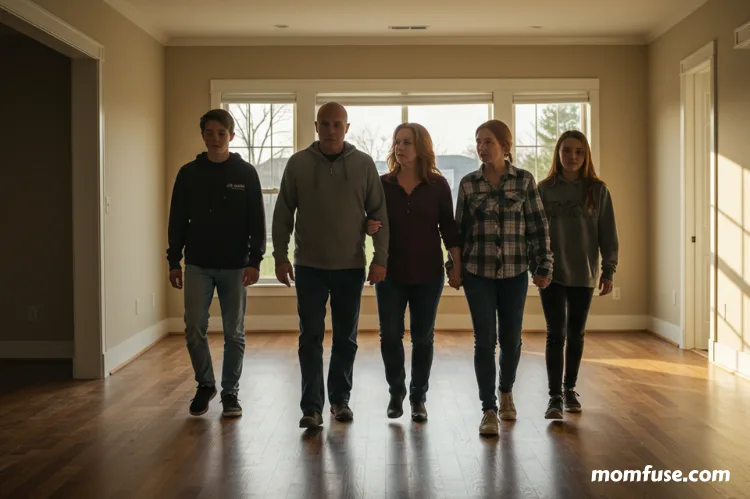Letting go of a home filled with memories can feel like parting with a piece of yourself. A long-time family home holds the echo of footsteps, the scent of familiar meals, and aging pencil marks on the wall tracking childhood growth. These are more than details—they’re deeply embedded stories.
When the time comes to say goodbye, the emotional weight can catch people off guard. Whether downsizing, relocating, or making necessary life changes, the experience is often layered with grief, hope, and nostalgia. Managing those feelings is just as significant as managing logistics. Here’s how to move through this emotional transition with balance and intention.
Make It Fast

Selling through traditional methods can stretch the emotional strain over weeks or months. When you’re already dealing with attachment and the memories rooted in the home, a quick and uncomplicated process often brings relief. Cash offers are known for their speed and simplicity, which can be especially helpful when emotions are running high.
They remove many of the uncertainties—no waiting on buyer financing or worrying over appraisals. Many sellers find peace knowing they can Sell Mobile Home Quickly and on their terms, without delays that might reopen emotional wounds every time a showing is scheduled or a buyer backs out. Fewer hurdles mean fewer emotional spikes. For many, confirming that everything is stable including essentials like mobile home levelling, adds one more layer of reassurance during the transition.
Allow Space for Grief Before the Sale Begins

Before anything is listed or any offers are reviewed, take a moment to say goodbye. Spend time in each room, recalling its significance. Talk aloud, write down memories, or walk through with family members and reminisce.
Sometimes grief hides behind logistics—packing, contracts, inspections—but it doesn’t disappear. Ignoring it might lead to regret or second-guessing later. Accepting the sadness at the start makes room for clarity in decision-making later on. If you let yourself feel the loss, you’re less likely to carry it as emotional weight throughout the sale process.
Turn Memories into Keepsakes, Not Burdens

The pressure to keep everything is strong. Old toys, mismatched china, faded furniture—all of it feels like a link to the past. But cluttered attics don’t honor memories; they trap them. Instead, select a few physical reminders and let go of the rest. Take photographs of rooms and items.
Create a memory book or digital album. Repurpose something meaningful, like turning fabric from curtains into pillowcases. This transforms the memory into something you carry forward, not something you leave behind. What matters is the meaning, not the material.
Talk Through the Process with Family Members

Selling a family home doesn’t affect only one person. Siblings, children, and even close friends may feel deeply connected to it. Conversations ahead of time can prevent confusion and resentment. Allow space for everyone to express what the home has meant to them. This isn’t just about logistics—who gets what or how proceeds will be split—it’s about allowing emotions to be heard. A shared understanding helps everyone grieve and move forward with fewer complications. When everyone feels seen, the goodbye becomes more peaceful.
Mark the Ending with a Meaningful Ritual

Closure helps transition the mind from holding on to letting go. Creating a small farewell ritual can make a difference. Some choose a family dinner at home before moving out. Others leave a note for the next owners. You might plant a flower in the yard, walk the empty rooms one last time, or play favorite music that filled the space for years. This ritual doesn’t need to be dramatic. What matters is that it marks the transition in a way that feels real and deliberate.
Reframe the Sale as a Gift to a New Family

Sometimes the home feels too full of your family’s presence to imagine anyone else in it. But each house has the potential to nurture new memories. Letting someone else create their own story in that space can shift your perspective.
The dining room where you hosted every holiday might now host someone else’s first Thanksgiving. The swing set in the backyard may hear different laughter. When you begin to imagine the house as a place where life continues, just under different hands, the sadness softens into something more generous.
Accept that Conflict May Arise—and Let It Pass

Emotions don’t always show up as tears. Sometimes they come as irritability, disagreements, or silence. Tensions may build between family members over decisions—whether to renovate before selling, how to divide belongings, or what price to accept.
Recognize that these are often emotional reactions, not just practical ones. Give space, speak gently, and understand that the friction usually comes from grief, not malice. The goal isn’t to avoid all conflict, but not to let it dictate the tone of this important transition.
Selling a long-time family home is never just about bricks and mortar. It’s about navigating a deeply personal shift, one that carries echoes of the past and anxieties about the future. The home you’re leaving behind has done its job. Now it’s your turn to step into what comes next—with gratitude, honesty, and hope.
Read Next: Creating an Accessible Home for All Generations

